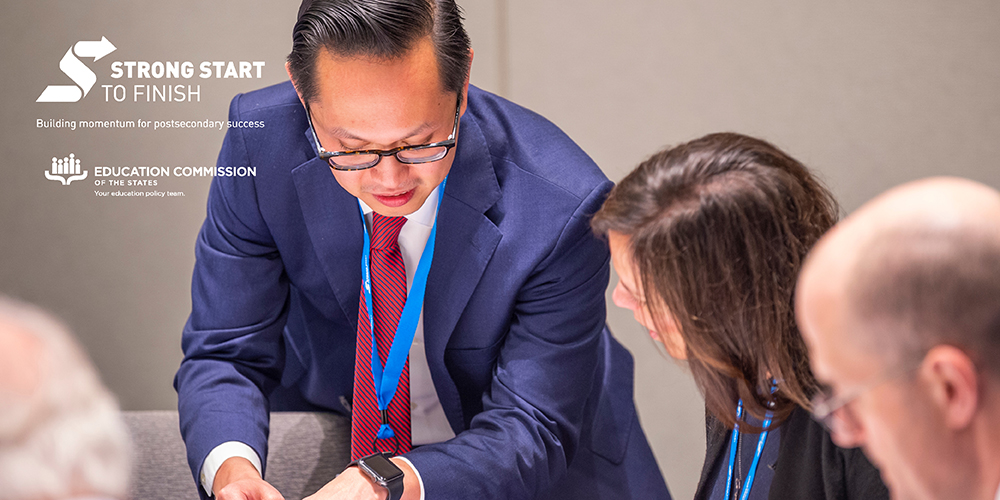Strong Start to Finish: Who, What, and Why
By Christopher M. Mullin

There is a persistent problem for students placed in developmental courses in math and English at colleges and universities. They are not completing the courses and, in most cases, should not be taking them in the first place. Consider that more than 50 percent of students attending two-year institutions and 33 percent of students attending four-year colleges are placed in ineffective developmental courses. While large numbers of students from all demographics are placed in the courses, participation is highest among African Americans and Latinos/as. And once placed, nationally, 50 percent of students at public two-year colleges and 40 percent of students at public four-year colleges fail to complete their developmental coursework within six years.
While developmental education outcomes are deeply troubling for state and institutional leaders and practitioners, for low-income students, students of color, and returning adults who see college as a path to something greater, our collective failure to adequately support their success is a heavy burden to bear.
This is why we exist.
Who We Are
Strong Start to Finish is a network of like-minded individuals and organizations from the policy, research, and practice spaces who have come together for one reason: to help all students, not just a select few, find success in postsecondary education. As experts in this space, we leverage and elevate the talent of 29 organizations and six systems by pooling together some of the best and brightest in our fields to establish practices that work. Because collectively we’ve been there—teaching on campus, serving on leadership boards, and working in the field—we know how to create the change we want to see for students.
What We Do
We connect higher education systems and institutions with proven tools, high-quality technical assistance, and financial and human capital resources to give every student the best start on the path toward a degree. Our work focuses on helping those who are at the highest risk of failure, including low-income students, students of color, and returning adults, overcome the challenges that come from developmental courses.
Pooling this level of expertise takes a commitment from everyone involved, and it is our charge to bring leaders to the table, create shared knowledge, and turn learning into action. We work with the higher education community that wants to bring these proven practices to their campuses by connecting them with the resources that will work best and the experts they need.
We have networked higher education leaders, policy entrepreneurs, institutions, and technical assistance providers to drive toward an outcome where all students pass their first credit-bearing English and math courses during their first year of study.
To do this, we are identifying and scaling policies and practices to fit institutions large and small so that all college students start and finish strong. We are developing next-generation technical assistance practices and policies to help more students succeed. And we are supporting and undertaking research and evaluation efforts that advance our collective understanding of what works, for which type of students, and under what conditions.
Why We Are Different
We believe in the possibility and power of change at scale. By aligning best practices, fostering sound system and state policy, and networking our knowledge we can impact more students, in more places, in a shorter duration, than working alone.
We are impatient and dedicated. We know that by working together we are creating a ripple effect and leveraging momentum that will ultimately increase success for all students and give them a strong start to a meaningful postsecondary credential.
Change at this level can only come from practices that are scalable and can work for institutions of all sizes. And while the work we’re doing is not new, our efforts to identify and expand best practices that can be implemented at any institution are truly first of their kind. Our holistic approach is meant to improve the whole system. We are here to bring together individuals to share ideas, move the needle, and foster change at scale.
We are pleased to be just one voice in this space that is working with intentionality to bring coherence around evidence-based policy and practice to support dedicated faculty and staff in undertaking reforms on their campuses and in their systems.
| Christopher M. Mullin is the director of Strong Start to Finish at the Education Commission of the States. Strong Start to Finish is a sponsor of the 2019 CAPR conference, Reimagining Developmental Education: How Can We Do Better for Our Students? |
